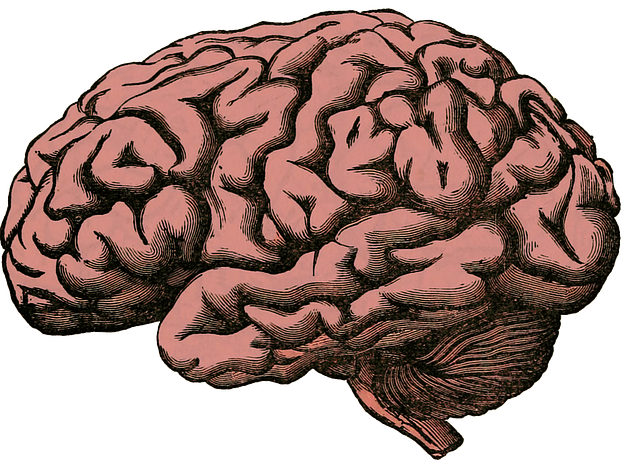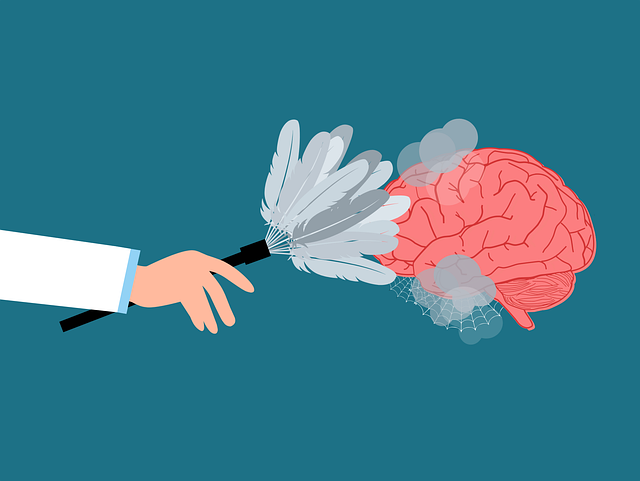Castle Rock Developmental Disability Therapy employs a meticulous diagnosis process involving qualified professionals who assess symptoms, personal history, and medical records to differentiate mental health disorders. They offer tailored support for individuals with developmental disabilities and co-occurring mental health conditions, integrating evidence-based practices to prevent burnout and enhance treatment accessibility. The therapy focuses on building strong client-caregiver relationships, educating communities, and advocating for improved mental health policies, empowering clients and their support networks for successful journeys.
Navigating mental illness diagnosis and treatment can be a complex, challenging journey. This article provides a comprehensive guide to understanding the process, addressing common hurdles, and offering practical solutions. We explore the role of Castle Rock Developmental Disability Therapy as an innovative approach to treatment navigation, empowering individuals to access the support they need.
Key sections cover everything from deciphering diagnoses to effective strategies for navigating mental health services, along with valuable tips for caregivers and advocates supporting loved ones.
- Understanding Mental Illness Diagnoses: Uncovering the Process and Challenges
- The Role of Castle Rock Developmental Disability Therapy in Treatment Navigation
- Effective Strategies for Accessing and Navigating Mental Health Services
- Supporting Individuals with Mental Illness: Tips for Caregivers and Advocates
Understanding Mental Illness Diagnoses: Uncovering the Process and Challenges

Mental illness diagnoses are complex processes that often involve a comprehensive evaluation by qualified professionals. At Castle Rock Developmental Disability Therapy, we understand that navigating this journey can be daunting. The process typically begins with an initial assessment, where symptoms, personal history, and medical records are carefully examined to rule out other conditions and identify potential mental health disorders. This may include interviews, surveys, and standardized assessments conducted by psychiatrists, psychologists, or licensed therapists.
Challenges arise when symptoms overlap between various disorders or when individuals present with complex co-morbidities. Burnout prevention becomes crucial during this phase as the diagnostic process itself can be emotionally taxing. Additionally, social skills training and confidence boosting strategies may be employed to support clients throughout the evaluation, ensuring they feel heard and understood. Effective communication and collaboration between clients and healthcare providers are essential to uncovering accurate diagnoses and tailoring appropriate treatment plans.
The Role of Castle Rock Developmental Disability Therapy in Treatment Navigation

Castle Rock Developmental Disability Therapy (CRDDT) plays a pivotal role in navigating the complex landscape of mental illness treatment. This specialized therapy approach is tailored to individuals with developmental disabilities, offering crucial support for managing co-occurring mental health conditions. CRDDT not only addresses the unique challenges faced by this population but also fosters resilience and promotes recovery.
By integrating evidence-based practices, CRDDT helps patients develop effective coping strategies to manage stress and prevent burnout, which are prevalent issues in their lives. The therapy focuses on improving access to care, ensuring individuals receive appropriate treatment for both developmental disabilities and mental health disorders. Furthermore, public awareness campaigns developed around CRDDT can educate communities, dispel myths, and encourage early intervention, ultimately enhancing the overall mental health of society.
Effective Strategies for Accessing and Navigating Mental Health Services

Navigating mental health services can be a complex and often overwhelming task, especially for those living with developmental disabilities. At Castle Rock Developmental Disability Therapy, we understand the unique challenges our clients face when accessing care. Our approach focuses on providing personalized support to ensure every individual receives the appropriate treatment. One effective strategy is fostering strong relationships with local healthcare providers through ongoing communication and collaboration. This involves educating medical professionals about developmental disabilities, promoting cultural competency training, and encouraging open dialogue.
Additionally, we emphasize the power of empathy-building strategies and self-awareness exercises for both clients and their support systems. These tools facilitate understanding and acceptance, creating a supportive environment crucial for successful treatment navigation. By combining these methods, we aim to break down barriers and empower individuals to take charge of their mental health journeys.
Supporting Individuals with Mental Illness: Tips for Caregivers and Advocates

Supporting individuals with mental illness is a crucial role for caregivers and advocates. At Castle Rock Developmental Disability Therapy, we emphasize the importance of empathy and patience when assisting those navigating their mental health journey. Understanding that every individual’s experience with mental illness is unique, it’s essential to approach each situation with openness and adaptability.
Caregivers can play a vital role in fostering emotional healing processes by providing a safe and non-judgmental space for their loved ones to express their feelings. This includes actively listening, validating their experiences, and encouraging open communication. Through Mental Health Policy Analysis and Advocacy, caregivers can also push for systemic changes that improve access to quality mental health care services. Additionally, participating in Mental Health Education Programs Design can equip both the individual and their support network with valuable knowledge and skills, enhancing their ability to manage symptoms effectively.
Navigating mental illness diagnoses and treatment can be a complex journey, but with the right support, it becomes manageable. As highlighted in this article, understanding the diagnostic process is crucial, and so is accessing specialized therapies like Castle Rock Developmental Disability Therapy for effective treatment navigation. By adopting the shared strategies and tips provided, individuals with mental health challenges, along with their caregivers and advocates, can efficiently access services, fostering better outcomes and enhancing overall well-being.














